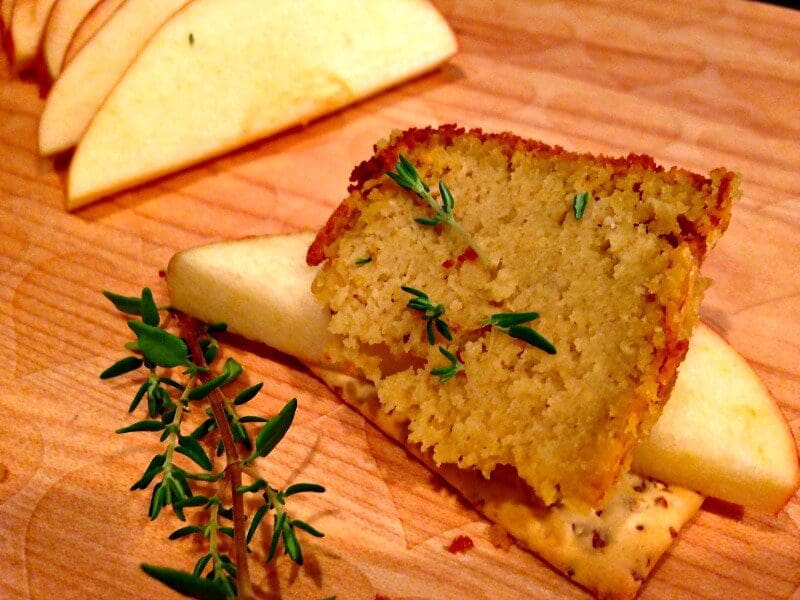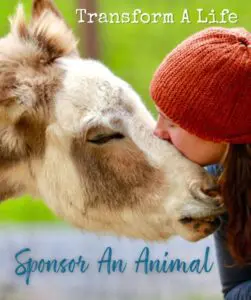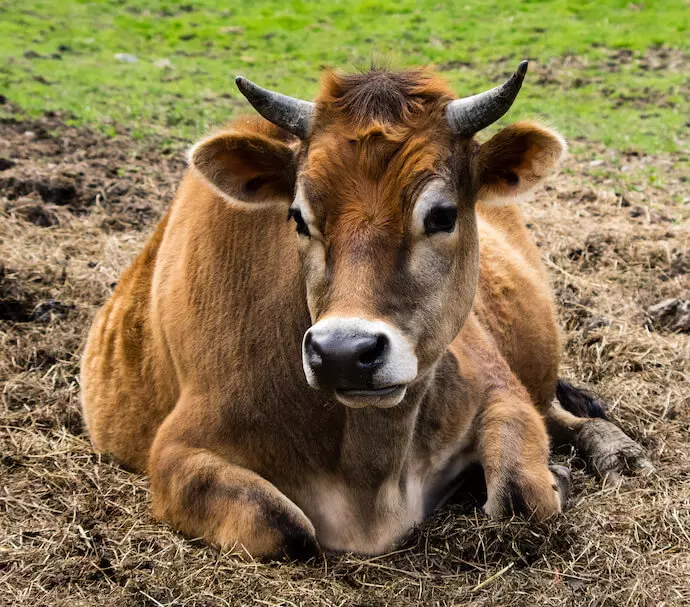
Say, “Vegan Cheese!”
Say, “Vegan Cheese!”
Ending our Unhealthy Love Affair with Real Cheese
 by Holly Kalyn, Compassionate Cuisine Editorial Intern
by Holly Kalyn, Compassionate Cuisine Editorial Intern
“I could never give up cheese.” How many times have we heard this … or said this? The idea of having to forgo pizza, cheese and crackers, lasagna, and nachos is an unimaginable prospect for many people who want to pursue a vegan diet. It seems cheese is one of the last foods people give up when going vegan! According to a recent survey by The Humane League, most find it much easier to give up meat, chicken, fish and eggs.
Why the love affair with cheese? First of all, it tastes really good. It’s gooey, melty, creamy, rich, sometimes salty, sometimes sweet, and … addictive. The salt and fat stimulate the reward centers in the brain.
Our obsession with cheese is not at all healthy. According the Physician’s Committee for Responsible Medicine, cheese, loaded with cholesterol and sodium, is also the largest source of saturated fat in the American diet, increasing the risk of heart disease, diabetes, and cancer. “Real” Cheese suddenly isn’t looking so good anymore, right?
And if all that weren’t enough, let’s talk about the reality of how cheese is made and why it’s just as cruel to consume cheese as it is to eat a steak. Female cows are forcefully and continuously impregnated to give birth and produce milk, lots of milk, which is used to make the cheese we can’t seem give up. (Imagine being pregnant for essentially your whole life. Sound like fun?) Then, in order to produce the massive quantities of milk the world is consuming, cows are genetically manipulated to produce unnaturally high milk yields. Mastitis (a painful infection of the udder) is rampant, so cows are routinely fed antibiotics which end up in the milk…and cheese. After about two years, most dairy cows are “spent” and are sent to slaughter. To add insult to injury, when looking at cheese labels (especially specialty cheeses) you’ve probably noticed something called rennet listed in the ingredients. Well, rennet is actually an enzyme extracted from the stomachs of recently slaughtered calves, another crime committed against cows in the name of dairy cheese.
So, are you ready to finally end your unhealthy relationship with cheese? Well, the good news is that there are options! In fact, there are so many options, we have to offer our recommendations in a two-part series! Next week, we’ll explore additional store bought brands as well as a variety of vegan cheese sauces that can be used in things like Mac & Cheese, fondue … and much more. For now, check out some artisanal and homemade options.
Artisanal Cheeses for the Cheese Connoisseur
Whoever said non-vegans are the only ones that get to eat amazingly sophisticated gourmet cheeses was wrong. Here are four brands of artisanal cheeses that are crafted by makers who understand the refined palate of cheese-lovers and that could easily compliment your favorite wines at cocktail hour.
Soft ripened, soft fresh truffle and chive cheeses (both made from almond milk) have a rich and sophisticated taste. This company insists on using traditional techniques of cheese-making together with the finest equipment to craft high-quality products. Kite-Hill custom blends their nut-milk in small batches for each cheese they make. Their team will tell you themselves that they “value craftsmanship, culinary creativity, delicious choices, and collaboration with farmers.” What’s not to like?
Founded in Williamsburg, Brooklyn, this certified organic, environmentally conscious company knows cheese and they’re churning out products made from 100 percent raw certified organic nuts. While using only pure, high-quality ingredients, they also craft their cheese without preservatives, additives, or any artificial ingredients of any kind. Dr. Cow makes an organic cream cashew cheese as well as seven varieties of aged nut cheese.
Treeline cheeses are made from Brazilian cashew nuts, and again, are made using a similar process to dairy cheese — fermentation. Treeline offers two French-style soft cheeses and two aged hard cheeses. Michelle, Outreach Manager at CAS, claims Treeline’s soft French cheese is one of the best vegan cheeses she’s ever tasted.
When she became vegan, Miyoko Schinner set out to simulate the flavor and texture of dairy cheese using plant-based ingredients. Before long, Miyoko’s Kitchen was born and now people everywhere can enjoy her artisanal products made in California. Choose gourmet cheeses ranging from soft cheese such as Double Cream Sundried Tomato Garlic to hard cheese like Aged English Sharp Farmhouse.
Homemade Cheeses
Feel like making your own? Many recipes are actually pretty simple and can be used to make many of your favorite dishes. Try these options for ricotta, fresh mozzarella, parmesan, and even feta.
Chef Linda’s recipe for cashew ricotta will be perfect in your lasagnas, baked zits, and any casseroles or recipes calling for this creamy favorite. Test it out in her recipe for Eggplant Rolatini or try it as an appetizer in Roasted Grape and Cashew Ricotta Crostini and see for yourself!
Chef Linda’s Baked Almond Cheese can replace feta cheese in most recipes. You can use it on top of soups and pasta, in Spanakopita, or eat it alone like one of the artisanal cheeses above.
Chef Linda uses her Brazil Nut Parmesan on top of her Macaroni and Cheeze casserole as a crunchy topping. Try it on top of pasta, soups or salads.
Simple to make and great on pastas, pizzas, and gratins, Minimalist Baker’s 4-ingredient cashew parm is another great Parmesan alternative to try.
Surely, we’ve sparked a vegan cheese craving! Seeing how many options there are and knowing you can enjoy any of them with a clean conscience is probably making you jump out of your seat trying to figure out which to try first! Try one or all of them and let us know what you think! And let us know if you have any favorites – we want to shout it from the rooftops!






